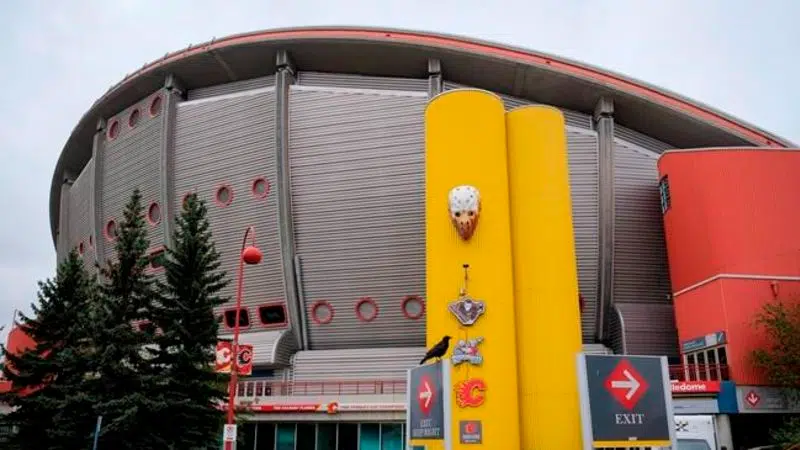
Calgary, Flames take another shot at a new NHL arena, agree to terms
CALGARY — A new NHL arena in Calgary is closer to becoming a reality.
The city, the Calgary Flames and the Calgary Stampede have agreed on terms for an event centre that would become the new home for the Flames and replace the 36-year-old Saddledome.
City council has yet to approve the deal, but details were unveiled at a news conference Monday evening at city hall.
The estimated cost of the proposed 19,000-seat venue is $550 million.
